Key takeaways:
- Criminal background checks can negatively impact individuals seeking second chances, as past infractions may overshadow qualifications.
- The cannabis industry faces challenges due to inconsistent state regulations regarding hiring practices and background checks.
- A holistic approach to background checks, considering personal growth and rehabilitation, could improve hiring practices and reduce bias.
- Standardizing disqualifying offenses and training hiring managers could promote empathy and understanding in the hiring process.
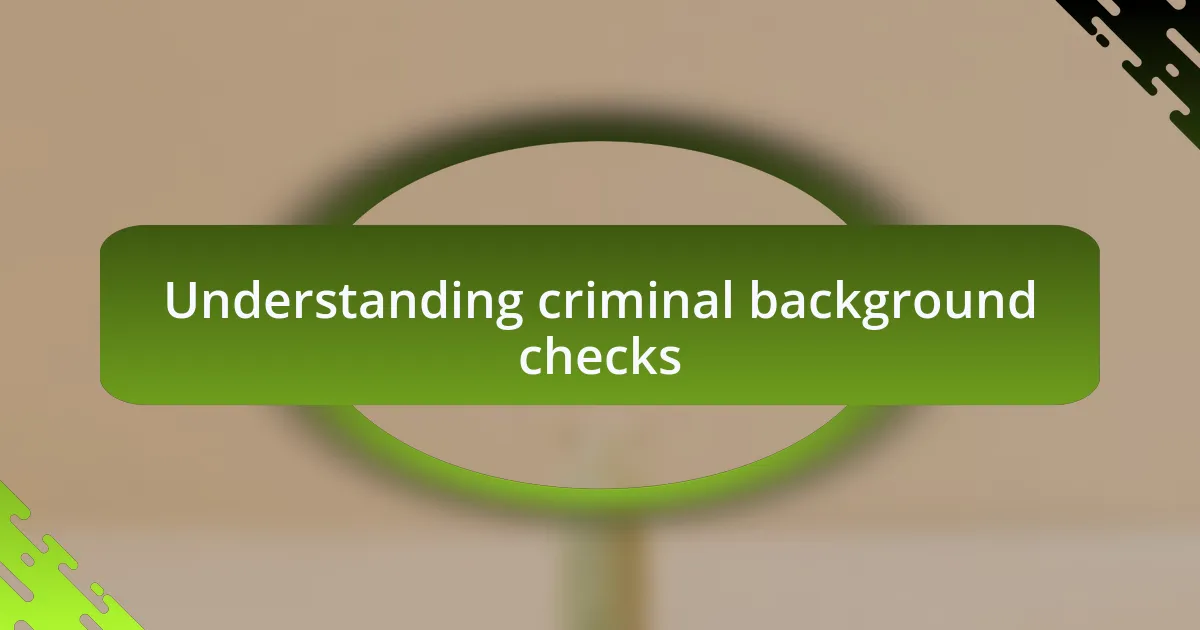
Understanding criminal background checks
Criminal background checks serve as a tool to assess an individual’s history related to criminal activity. It’s fascinating how these checks can vary widely depending on the state or industry. For instance, I once worked with a candidate who had overcome a past mistake, and their background check revealed an old infraction that could have cost them a job they were well-qualified for. Isn’t it interesting how a single moment can linger in someone’s life long after they’ve moved on?
These checks typically include searches for felonies, misdemeanors, and even pending legal cases. When I first learned about the depth of these inquiries, I found myself wondering: how fair is it to judge someone based on their history, especially when they have shown growth and change? It’s crucial to consider that not all criminal records tell the whole story; they often lack context about personal circumstances and rehabilitation efforts.
Ultimately, what I appreciate about criminal background checks is their dual purpose: they protect employers and the community while also serving as a reflection of societal values. Navigating the complexities of these checks can feel daunting, but remembering that each record is just one part of a person’s life narrative can offer a more compassionate perspective. Have you ever thought about the impact these checks could have on someone looking to start anew?
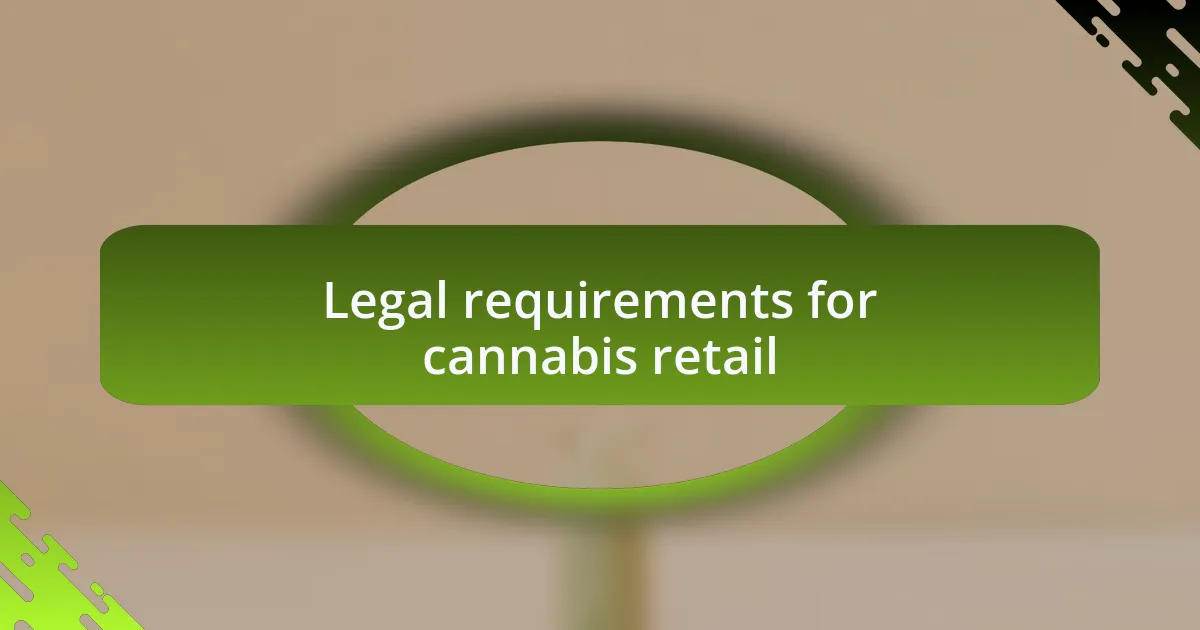
Legal requirements for cannabis retail
When it comes to cannabis retail, legal requirements can be quite intricate. In many states, I’ve seen that obtaining a license isn’t just a formality; it involves an extensive application process that often includes detailed background checks. I recall a friend who faced challenges navigating this maze of regulations, highlighting how crucial it is for applicants to understand the specific requirements in their state.
Licenses often require proof of financial stability and compliance with local health and safety regulations. I once worked with a dispensary owner who struggled to get approval because of minor discrepancies in their financial documentation. That experience taught me a valuable lesson about the importance of meticulous record-keeping when entering the cannabis industry.
Additionally, personnel working in cannabis retail might also need to undergo background checks. It’s interesting to see how the retail sector is adapting to this evolving landscape. Some of my colleagues in this field have mentioned that these checks can sometimes lead to unfair bias against individuals seeking a fresh start. How do we balance the need for safety with the principle of giving everyone a fair chance? It’s a question worth pondering as the industry continues to grow.
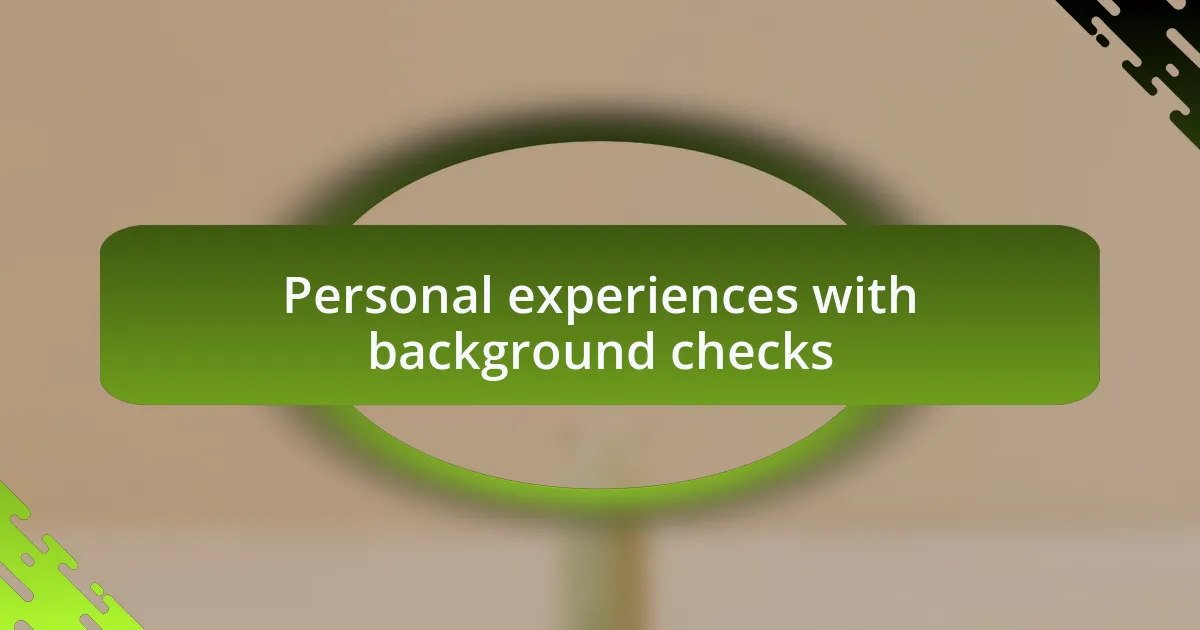
Personal experiences with background checks
When I first went through a background check for a job in a cannabis retail store, I was surprisingly anxious. The scrutiny felt intense, and I wondered if my past would overshadow my qualifications. I remember thinking about how many opportunities might be lost for people who have made mistakes but are genuinely trying to turn their lives around.
There was a moment during the process when I learned that minor offenses could lead to automatic disqualifications. I felt a wave of empathy for others in my situation who were eager to contribute positively to the industry but were held back by their past. In that moment, the question lingered: should we really let past mistakes dictate someone’s future?
In conversations with colleagues, I often hear mixed feelings about these checks. While some see them as a necessary measure for safety, others believe they can perpetuate stigma rather than foster growth. It makes me wonder how the industry can evolve to benefit from transparency while also embracing second chances.
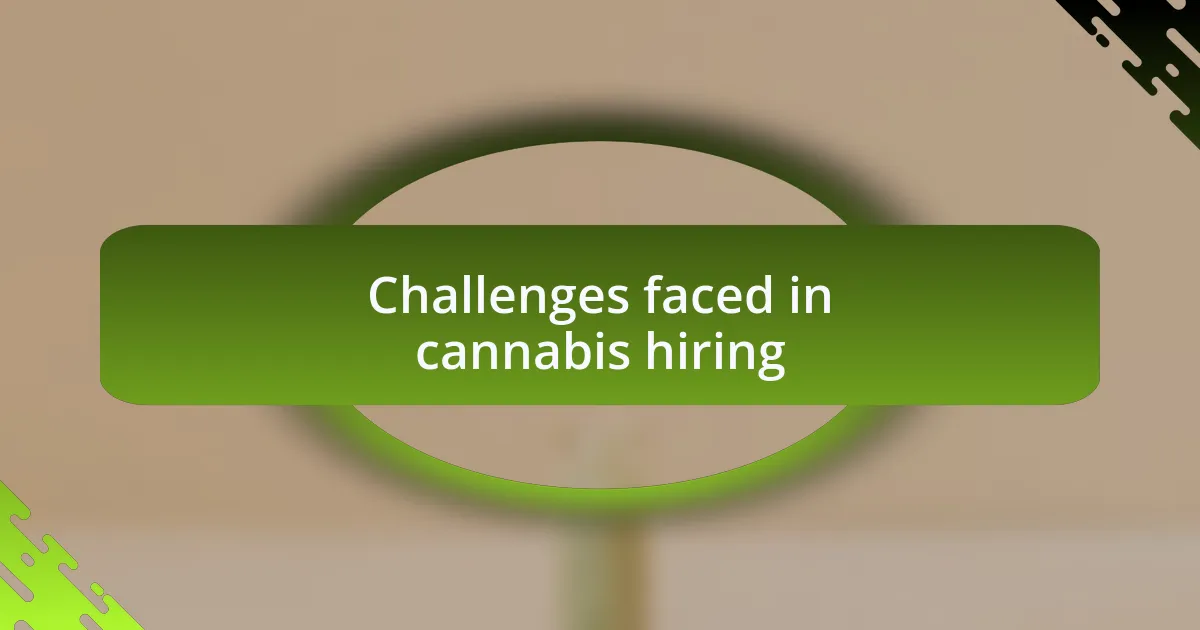
Challenges faced in cannabis hiring
Finding the right talent in the cannabis industry often feels like searching for a needle in a haystack, especially with the stringent hiring practices involved. I recall a conversation with a friend who runs a dispensary; she expressed frustration over losing potential candidates simply because of a minor infraction from years ago. Should a past wrongdoing overshadow someone’s ability to excel in a role they’re passionate about?
Moreover, the inconsistency in regulations across states introduces another layer of complexity. I’ve seen applicants get disqualified in one state for offenses that are overlooked in another. It raises an unsettling question: how can we expect a diverse workforce when the rules governing hiring practices are anything but uniform?
Then there’s the emotional toll this process takes on candidates. I once spoke to a hopeful applicant who shattered my preconceptions about background checks. He shared how each rejection based on his past eroded his confidence despite being fully qualified. Isn’t it disheartening to think that qualified individuals are kept at arm’s length due to mistakes they’ve moved on from?
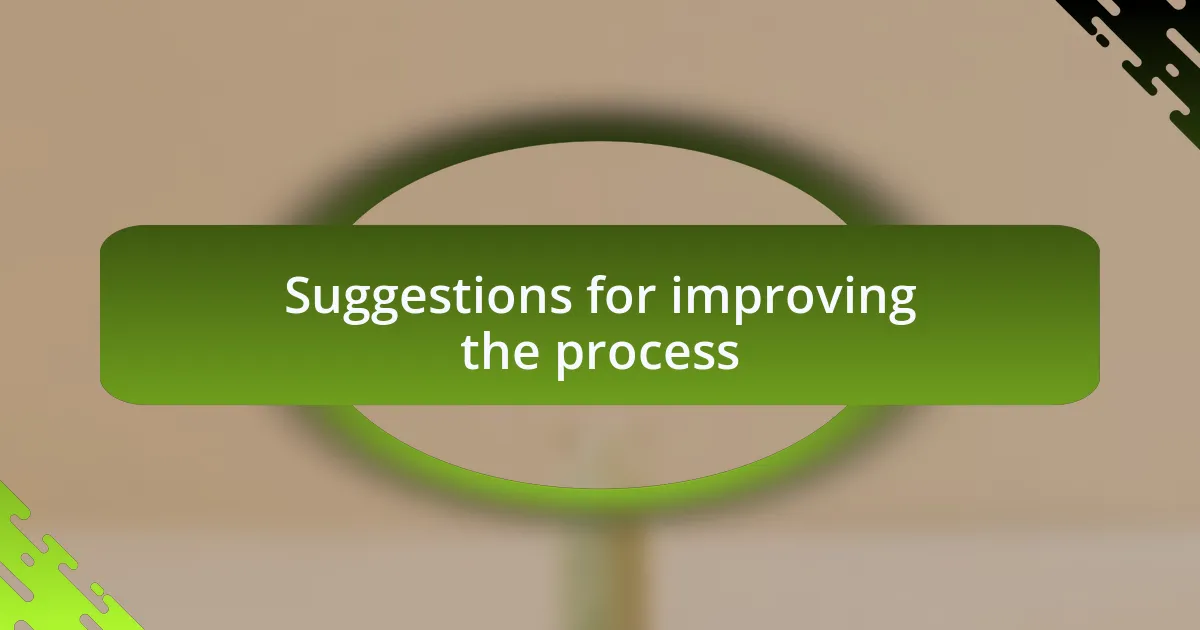
Suggestions for improving the process
One way to improve the background check process is to implement a more holistic approach. I remember a time when a colleague shared her experience interviewing a candidate who had a marijuana-related offense from years ago. Instead of focusing solely on that incident, she took a moment to learn about his journey since then. Wouldn’t it make sense to view applicants through a broader lens, considering their growth and how they’ve turned their lives around?
Additionally, establishing a standardized guide for what constitutes disqualifying offenses could greatly enhance consistency across states. I often think about the anxiety a candidate must feel when trying to navigate the maze of regulations. Imagine the relief if applicants could know upfront which offenses truly matter, enabling them to apply without fear of unexpected disqualification.
Finally, offering training programs for hiring managers on the impacts of past mistakes can promote understanding and empathy. Reflecting on my experiences, I’ve seen how biases can shape decisions, often without conscious intent. Shouldn’t we understand the human behind the background check? By fostering a more compassionate hiring environment, we invite a wealth of diverse experiences into the cannabis industry.